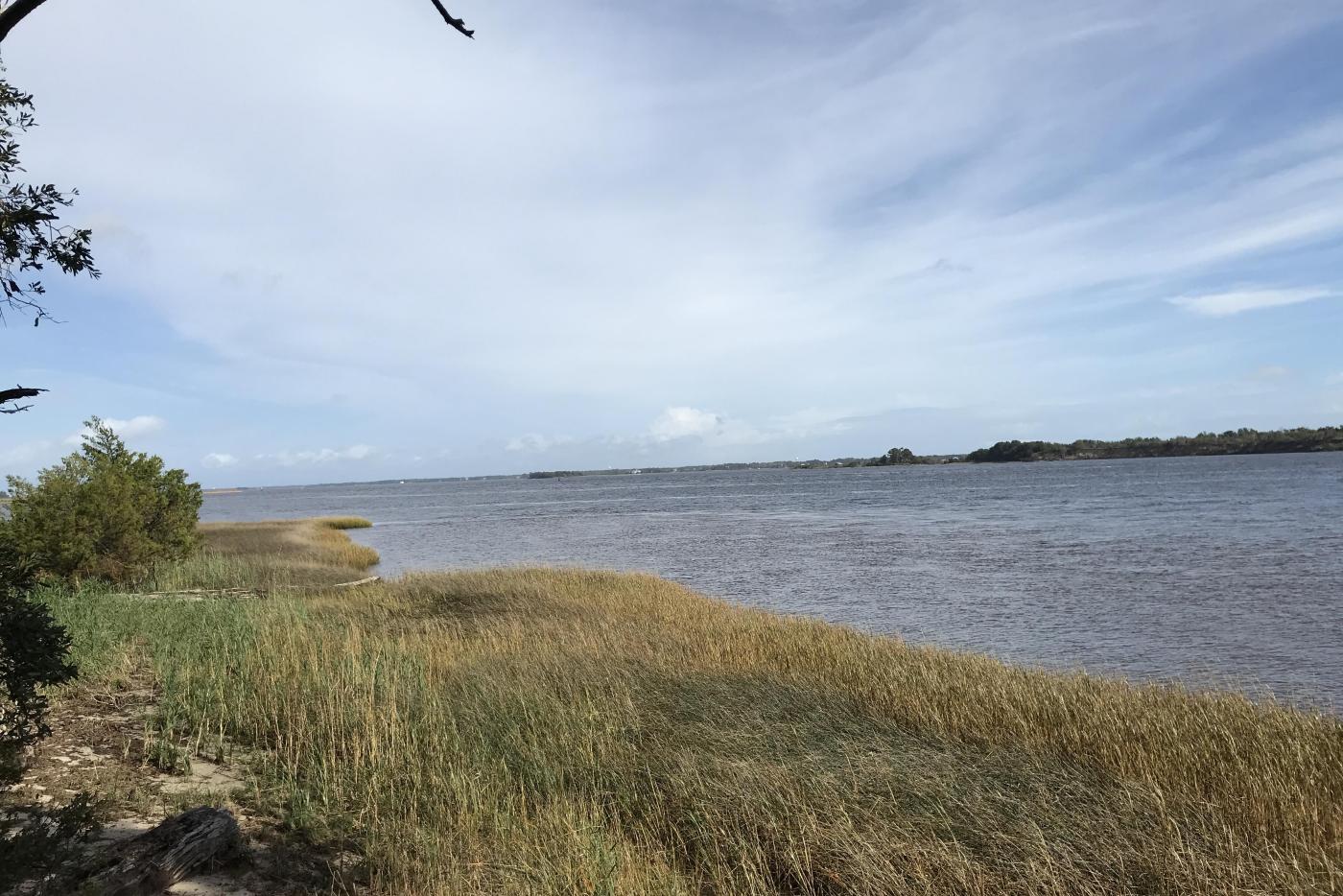The North Carolina Department of Natural and Cultural Resources (DNCR) has been awarded a grant by the National Park Service (NPS) to conduct an archaeological assessment at Brunswick Town-Fort Anderson State Historic Site. The $75,000 grant will fund an up-to-date, all-encompassing study of the site’s waterfront where a significant colonial port once operated.
Brunswick Town was established in 1726 as North Carolina’s colonial seat of government. To date, only a quarter of the town has been archaeologically excavated. Previous archaeological investigations have been both limited and intermittent, preventing a comprehensive understanding of the historic artifacts and resources on the property.
“Not since the archaeological investigations of Stanley South in the 1960s has a comprehensive assessment at the colonial capital and port of Brunswick Town been possible,” said State Archaeologist Chris Southerly. “With the modern tools and technology available, this grant will allow us to collect new and consistent data to better manage, steward, and protect this invaluable resource.”
The funding will allow DNCR to employ the latest technology including digital mapping, drone photography, ground-penetrating radar, and shoreline monitoring to conduct a full archaeological assessment. Importantly, this modern analysis of the site will consider severe weather variables, coastal environment conditions, and changes to the landscape that have made much of Brunswick Town’s surviving material culture vulnerable to destruction. The study will equip the agency to more effectively steward and preserve the site’s vast historic resources.
“Particularly as we reflect on Brunswick Town’s complex and important role in the founding of this country, we are excited by the possibilities of what this full assessment may reveal,” said Michelle Lanier, director of North Carolina Historic Sites. “We are extremely grateful that the National Park Service recognizes the urgency of this work and is investing in the long-term preservation of North Carolina’s cultural heritage.”
The project was awarded under the NPS Semiquincentennial Grant Program, which supports the preservation of a broad variety of cultural resources associated with the founding of America as a nation in commemoration of the country’s 250th anniversary of the American Revolutionary War in 2026. The source of the NPS funding is Outer Continental Shelf oil and gas lease revenue.
About the North Carolina Department of Natural and Cultural Resources
The N.C. Department of Natural and Cultural Resources (DNCR) manages, promotes, and enhances the things that people love about North Carolina – its diverse arts and culture, rich history, and spectacular natural areas. Through its programs, the department enhances education, stimulates economic development, improves public health, expands accessibility, and strengthens community resiliency.
The department manages over 100 locations across the state, including 27 historic sites, seven history museums, two art museums, five science museums, four aquariums, 35 state parks, four recreation areas, dozens of state trails and natural areas, the North Carolina Zoo, the State Library, the State Archives, the N.C. Arts Council, the African American Heritage Commission, the American Indian Heritage Commission, the State Historic Preservation Office, the Office of State Archaeology, the Highway Historical Markers program, the N.C. Land and Water Fund, and the Natural Heritage Program. For more information, please visit www.dncr.nc.gov.

